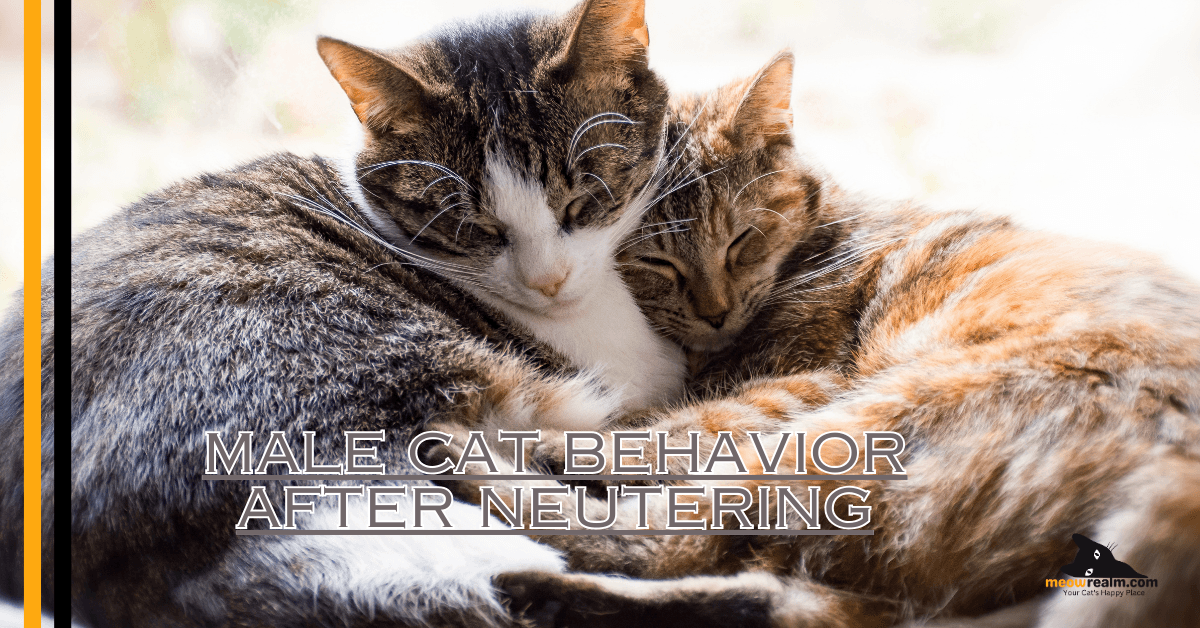Neutering a male cat is a significant step that can lead to positive changes in behavior, health, and overall well-being. Understanding male cat behavior after neutering is crucial for pet owners who want to provide the best care for their cats during this transition. In this article, we will discuss the common behavioral changes that occur in male cats after neutering and provide tips for ensuring a smooth recovery.
Why Neuter Your Male Cat?
Neutering, also known as castration, is a procedure that removes the testicles of a male cat, effectively eliminating the production of testosterone. This procedure has numerous benefits, both for the cat and for the community. One of the primary reasons for neutering is to control the cat population, but it also leads to several behavioral changes that make male cats more suitable companions.
Behavioral Changes in Male Cats After Neutering
1. Reduced Aggression A significant change in male cat behavior after neutering is a decrease in aggression. Testosterone is the hormone responsible for dominant and aggressive behaviors, particularly toward other cats. After neutering, your cat will likely become calmer, showing less territorial behavior and fewer instances of aggressive outbursts.
2. Decreased Urine Spraying Male cats often spray urine to mark their territory, especially if they feel threatened or want to attract a mate. After neutering, the urge to spray decreases significantly. It’s important to note that male cat behavior after neutering may not eliminate spraying entirely, especially if it has become a deeply ingrained habit. However, the procedure reduces the likelihood of this behavior continuing.
3. Lower Roaming Instinct The need to roam in search of a mate is a common behavior in unneutered male cats. After neutering, this instinct is dramatically reduced. As a result, your cat will likely stay closer to home, reducing the risk of injuries from fights or accidents. Male cat behavior after neutering often includes more time spent indoors, making it easier to keep them safe.
4. Improved Sociability Neutering can lead to improvements in a cat’s sociability. Male cat behavior after neutering may include a greater interest in spending time with family members, being more affectionate, and enjoying playtime more. Without the influence of hormones driving them to compete for mates, cats may become more relaxed and content.
5. Potential Weight Gain One of the most noticeable changes in male cat behavior after neutering is a reduced activity level. This is partly due to a decrease in roaming and a reduction in hormone-driven behaviors. While this calmer demeanor is generally a positive change, it may lead to weight gain if the cat’s diet and exercise levels are not adjusted accordingly. It’s important to monitor your cat’s diet and provide plenty of opportunities for play to prevent obesity.
Tips for Supporting Your Cat After Neutering
1. Provide a Comfortable Recovery Area After the surgery, your cat will need a quiet, comfortable space to recover. Providing a cozy area with minimal noise and limited interaction will help ease male cat behavior after neutering, as he may feel disoriented or uncomfortable initially. Avoid allowing your cat to jump or run until he has fully recovered from the surgery.
2. Monitor for Complications While complications from neutering are rare, it is important to monitor your cat closely for any signs of infection or discomfort. Male cat behavior after neutering may include licking the surgery site, but excessive licking can lead to infection. Using an Elizabethan collar (or “cone”) can help prevent your cat from disturbing the incision site during recovery.
3. Maintain a Healthy Diet and Exercise Routine As mentioned earlier, one common effect of male cat behavior after neutering is a tendency toward weight gain due to decreased activity. To prevent this, you may need to adjust your cat’s diet, either by reducing the amount of food or switching to a lower-calorie formula. Additionally, provide plenty of opportunities for physical activity through interactive play to keep your cat active and healthy.
How Long Does It Take for Behavioral Changes to Occur?
The timeline for changes in male cat behavior after neutering can vary. In some cats, you may notice changes in behavior within just a few weeks, while in others, it may take several months. Younger cats often experience more immediate changes compared to older cats who have had years of hormone-driven habits. Patience is key, as each cat will adjust to the changes at their own pace.
Common Myths About Male Cat Behavior After Neutering
1. Neutered Cats Become Lazy While it is true that male cat behavior after neutering includes a reduction in hyperactive behaviors, this does not mean your cat will become lazy. Neutered cats tend to be more relaxed and less likely to engage in destructive behaviors, but they still need play and stimulation. Engaging your cat with toys and activities will keep them physically and mentally stimulated.
2. Neutering Changes a Cat’s Personality Another common myth is that neutering will drastically change a cat’s personality. In reality, neutering helps reduce undesirable behaviors driven by hormones but does not fundamentally alter the cat’s character. Male cat behavior after neutering tends to be more balanced, with the cat retaining their unique personality traits while being less prone to aggressive or territorial actions.
Embracing Positive Changes in Male Cat Behavior After Neutering
Neutering your male cat is a responsible decision that benefits both your cat and the broader community. Understanding the changes in male cat behavior after neutering will help you support your pet during this transition. From reduced aggression to a decrease in roaming, these changes contribute to a safer and more harmonious household. With the right care, diet, and attention, your neutered male cat can lead a happy, healthy, and well-adjusted life.


